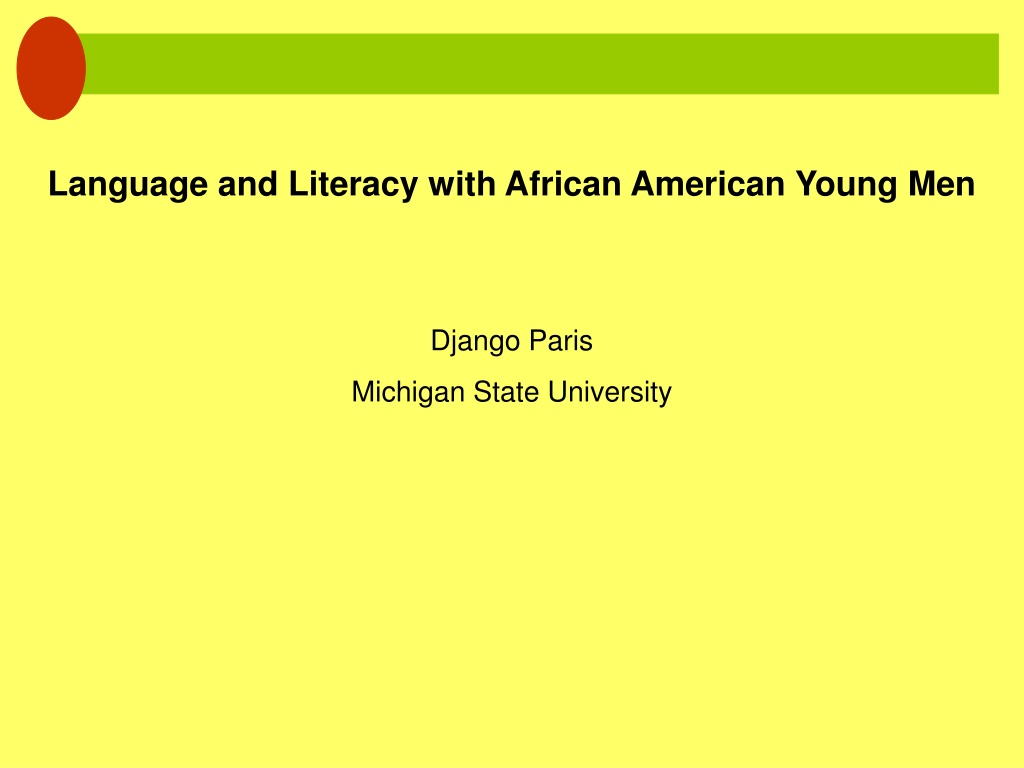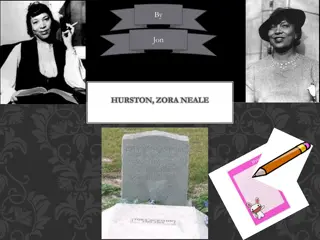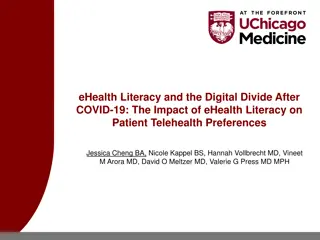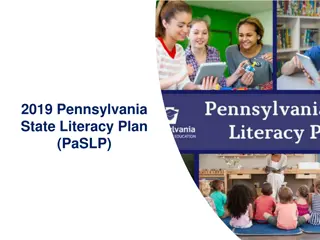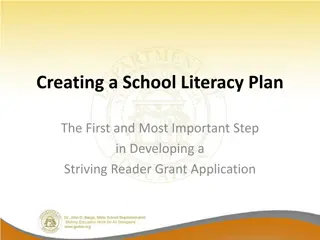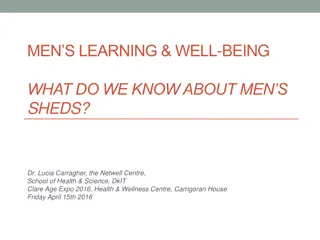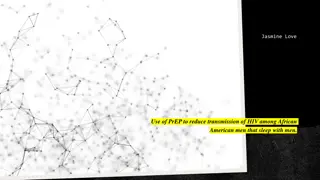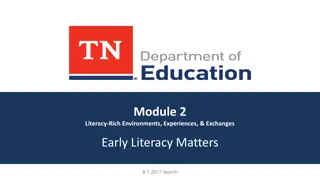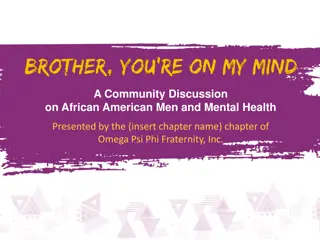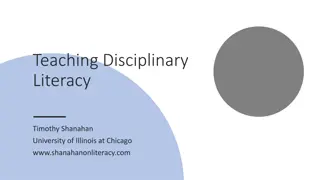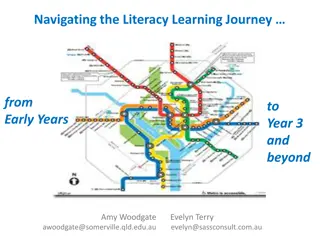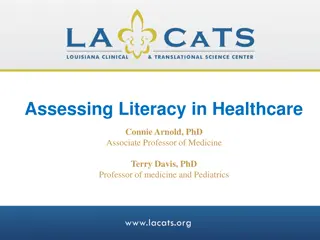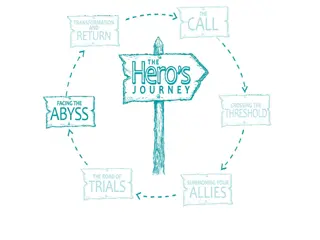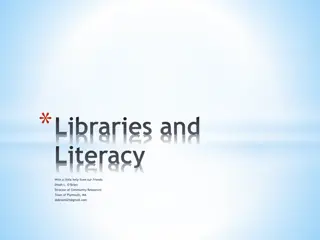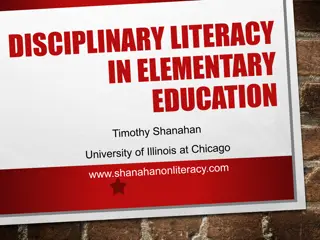Exploring Language and Literacy with African American Young Men
Delve into the significance of language and literacy among African American young men, as addressed by Django Paris from Michigan State University. The presentation discusses the commitment to their achievement, the challenges they face, and various educational approaches to empower them through cultural awareness and skill-building.
Download Presentation

Please find below an Image/Link to download the presentation.
The content on the website is provided AS IS for your information and personal use only. It may not be sold, licensed, or shared on other websites without obtaining consent from the author. Download presentation by click this link. If you encounter any issues during the download, it is possible that the publisher has removed the file from their server.
E N D
Presentation Transcript
Language and Literacy with African American Young Men Django Paris Michigan State University
Anchoring Our Work Why am I committed to the African American young men? Why am I committed to their achievement through language and literacy?
How does it feel to be a problem? Dubois This double-consciousness, this sense of always looking at one s self through the eyes of others, of measuring one s soul by the tape of a world that looks on in amused contempt and pity. Baldwin A child cannot be taught by anyone who despises him
Approaches to (Literacy) Education Deficit Approach: Student heritage and youth languages, literacies, histories, and cultural practices are a deficit, show deficiency, the goal is to correct the deficiency with better language, literacy, history, and culture Difference Approach: Student heritage and youth languages, literacies, histories, and cultural practices are equal, but different, thoughthe goal remains largely to get students to use and understand DAE language, traditional DAE print literacies, and dominant cultural practices and histories Asset-Based Approach: Student heritage and youth languages, literacies, histories, and cultural practices are assets and resourcesfrom which to build dominant skills and knowledge, critical understanding, and provide a space for sustaining heritage and youth ways
What is the Purpose of (Literacy) Education? Cultural and linguistic mainstreaming, transitioning toward dominant language, literacy, history, and cultural practices (access and assimilation the main goal) (majority of L&L and general curricula, much of traditional ELD and bilingual) Acquisition of dominant practices while explicitly fostering and/or honoring the sustaining of marginalized practices and histories (cultural pluralism and access the main goals) (asset pedagogies, funds of knowledge & third spaces, dual immersion)
Language, Literacy, and Culture When we ask ourselves how we can meet the language and literacy needs of young Black men, we need to first ask ourselves, what are the languages and literacies young Black men are already engaged in and how can we join those in the project of school learning? We must understand the connection between oral and written language and the Black cultural community to adopt asset-based school climate and teaching and learning
African American Language AAL is a systematic English spoken as at least one of the Englishes of many African Americans. AAL has a history that is intimately connected with oppression and resistance, as well as the rich linguistic, spiritual, and literary achievements of African Americans. Like any language, AAL is learned and used in social interaction, so only people engaged in sustained interaction and communication in a community of AAL speakers will have reason to learn and use AAL.
AAL Grammar, Phonology, & Lexicon Some Systematic AAL features: Absence of 3rdperson singular s / Zero Copula Every time he wake up, he always turning it on Habitual be Cause they be trippin about that too Preverbal marker stressed been Rashida BEEN left Multiple negation I can't spit no rhymes
AAL Features in Text Messages Phonology Consonant Replacements ing to in ( to n): goin, doin th to d ( to d): da {the}, diz {this} Th to t ( to t): tanx {thanks} Monopthongization ma {my} Chillin wit ma friends R and L vocalization fo sho {for sure}, skoo {school} Grammar Zero Copula we da champz Regularized agreement the tickets is 10 Immediate future tense markers We Fnah {getting ready to} Ima leave {I m going to}
AAL in Literature, Hip Hop, Popular Media We know Hip Hop is laden with AAL grammar, phonology, and lexicon and is a crucial resource for classroom learning (Hill, Alim) Literature, too, is an excellent source for the study of AAL that can (and must) honor Black culture and language within the study of English (Carol Lee, June Jordan) Zora Neale Hurston Alice Walker Toni Morrison James Baldwin Junot Diaz
Toward Culturally Sustaining Pedagogies How can we foster pluralism (multilingualism and multiculturalism) in education for African American boys and young men? How can we sustain the histories and practices of our cultural communities while simultaneously gaining access to dominant opportunity structures? What languages, literacies, and knowledges are needed to gain access to dominant opportunity structures? Are they changing?
Contrastive Analysis with AAL and DAE -Does this classroom honor and value AAL does it take an asset-based approach? -What knowledge did this teacher need to facilitate this learning? - What additional activities, information about AAL, and conversations would you would want a teacher to share with young AAL speakers?
AAL and Linguistic Flexibility: The Case of Obama How might linguistic flexibility be seen as an asset rather than a deficiency or problem in society and education? What is the future of language, race, and ethnicity in this country and how will AAL and other languages be part of this future? http://www.youtube.com/watch?v=MckdodXl85A
Knowledge for Asset-Based Schools and Classrooms Knowledge of AAL, including the past and present literary, cultural, and spiritual history of African America We all must be committed to the outcome of cultural, linguistic, and literate pluralism If we do not join our African American boys and young men in understanding, honoring, and extending their languages and literacies we know what the outcomes will be Let us choose a path of respect and pluralism in language and literacy learning
